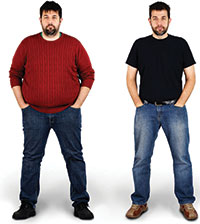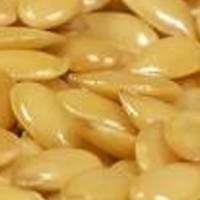No Magic Bullet For Fat Loss

Newsflash: there’s no magic bullet for fat loss. (But you already knew that.)
That’s what Melinda M. Manore, PhD, RD, CSSD, FACSM concluded after examining America’s $2.4 billion weight-loss supplement industry. Her results appear in the International Journal of Sport Nutrition and Exercise Metabolism.
Manore, a professor of nutrition and exercise sciences at Oregon State University, began this study by categorizing supplements into four categories:
- Blockers such as carb blockers or fat blockers
- Stimulants: caffeine and ephedra, for instance, which increase metabolism
- Body composition changers: supplements like conjugated linoleic acid (CLA) that reduce fat
- Appetite suppressants like fiber Manore found several problems with these supplements. One is that many of them lacked clinical trials to prove they work.
Two, the studies that showed a particular supplement did work more often than not yielded an unimpressive two-pound or less weight loss benefit compared to the supplement placebo.
In other words, hardly the rapid fat burners some supplements claim to be.
“What people want is to lose weight and maintain or increase lean tissue mass,” Manore said. “There is no evidence that any one supplement does this. And some have side effects ranging from the unpleasant, such as bloating and gas, to very serious issues such as strokes and heart problems.”
Not all of Manore’s news was grim. She found green tea and fiber, for instance, could stimulate fat loss, but only when you combine them with the right diet and exercise.
Now, if you’ve read my book Living Low Carb, you know I call fiber the number-one supplement for weight loss. Most of us don’t get enough of this important nutrient that helps promote satiety, lower your hunger hormone ghrelin, and balance blood sugar levels.
I’m also a big fan of green tea and green tea supplements for fat loss.
But you can’t swallow a glassful of psyllium husk and then go down in the Krispy Kremes. Likewise, you can’t chug green tea with your Starbucks scone and watch the pounds melt away. In other words, you’ve got to combine fiber and green tea with optimal foods and exercise for effective, lasting fat loss.
(Read my take on a recent study where they fed green tea extract to obese mice.*)
Manore inevitably provides advice for fat loss, most of which is decent even if you’ve heard it before: move more, eat more vegetables, start your meal with a salad, eat fruit rather than fruit juice, and ditch the processed crap. Sound familiar?
Can’t argue with any of that. However, she seriously misfires when she recommends reducing high-fat foods to lose weight. Manore evidently never got the memo that the right fats, such as almonds, coconut oil, and avocado, can actually help burn fat.
The take-home here—again, this is nothing new—is that some weight loss supplements prove more effective than others if you use them with an effective diet and exercise plan. Otherwise, you’re just throwing money away. In my experience, a lower-carb diet with optimal protein and fat, combined with burst training and weight resistance, provides amazing results.
Adding fiber and green tea to that plan can give you an extra boost to reduce cravings and step up fat burning. Just don’t expect them to do much if you don’t step up your diet and exercise.
*http://jonnybowdenblog.com/green-tea-extract-weight-loss/
-
The Prasouda Diet And What It Involves
The Prasouda diet also known as the Mediterranean diet is an awesome h
-
Does Hoodia Work? 3 Ways Hoodia Helps You Lose Weight
Youve seen the name everywhere. Hoodia Gordonii has taken the weight l
-
Can I take Weight Loss Pills While Breastfeeding?
Weight loss pills can be very helpful sometimes but then it is highly
-
Things You Need to Know about Cellulite Treatment
You could be thinking that it is possible that you are free from cellu
-
Healthy Food To Lose Weight Fast - Eat 5 Meals a Day and Lose Weight!
Healthy Food To Lose Weight Fast A lot of fad diets rely on depriving
-
Maintain Healthy and Fit Body through Weight Lose Program
The key ingredient of weight lose program is dieting. It can also do
- DON'T MISS
- Lose 25 Pounds in 4 Weeks - How to Get Rid of Fat Cells
- Fat Burning Furnace - Rapid Weight Loss System That Wont Make You Hungry!
- The Age Old Lemon Juice Cleansing Diet
- Fat Burning Furnace - Avoid Long Cardio Workouts If You Dont Want Slow Weight Loss!
- The Secret to Fast Weight Loss
- What Is The Diet Solution Program
- Choose The Right Diet Plan To Lose Body Fat
- How To Make Your Own Weight Loss Recipes
- Soup Diet to Lose Weight in One Week
- Top brand diet pills --Super Slim Pomegranate,lose weight fast




